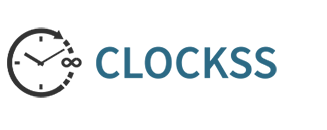Abstract
A meta-analysis was implemented to estimate the effect of facemasks in healthcare providers and non-healthcare providers on laboratory-confirmed respiratory viral infection. Methodology A systematic literature search conducted until March 2022 included 29 studies with a total of 18,489 participants at the start of the investigation. Among them, 9,569 people were utilizing facemasks, while 8,920 served as the control group. The Egger regression test was employed to evaluate the presence of publication bias, with a significance level of P<0.05. The odds ratio (OR) was evaluated at a 95% confidence interval (CI) using both the random effects and fixed effects models using the dichotomous method to evaluate the influence of facemasks in healthcare providers and non-healthcare providers on laboratory-confirmed respiratory viral infection. Facemasks had significantly lower laboratory-confirmed respiratory viral infection (LCRVI) between healthcare providers (OR, 0.31; 95% CI, 0.19-0.51, p<0.001), and between non-healthcare providers (OR, 0.58; 95% CI, 0.49-0.69, p<0.001) compared with control. N95 masks had significantly lower laboratory-confirmed respiratory viral infection between healthcare providers (OR, 0.67; 95% CI, 0.48-0.94, p=0.02), and no significant difference between non-healthcare providers (OR, 1.15; 95% CI, 0.94-1.41, p=0.017) compared with surgical masks. Facemasks shown a notable reduction in laboratory-confirmed respiratory viral infection among healthcare practitioners and non-healthcare providers, in comparison to the control group. Healthcare personnel who wore N95 masks had a notably reduced incidence of laboratory-confirmed respiratory virus infection. On the other hand, there was not a significant difference in the incidence of infection between non-healthcare professionals who wore surgical masks and those who did not wear any masks at all. Additional research is necessary to authenticate these discoveries.
Recommended Citation
Saeed, Haitham; Aldhalmi, Ahmed Khalid; AbdElrahman, Mohamed; and O. Elgendy, Marwa
(2023)
"A meta-analysis evaluating the effect of N95 respirators in healthcare and non-healthcare providers on laboratory-confirmed respiratory virus infection,"
Al-Mustaqbal Journal of Pharmaceutical and Medical Sciences: Vol. 1
:
Iss.
1
, Article 1.
Available at:
https://doi.org/10.62846/3006-5909.1000






